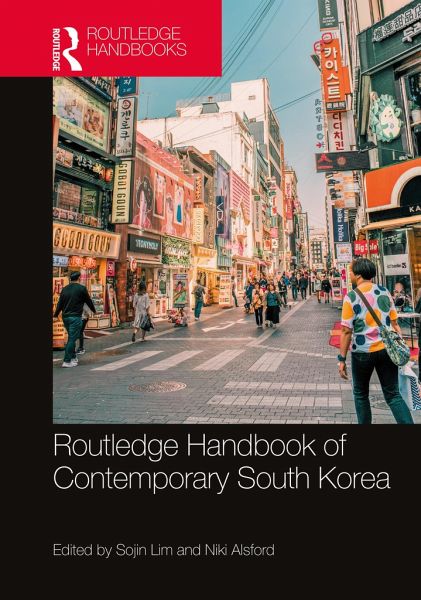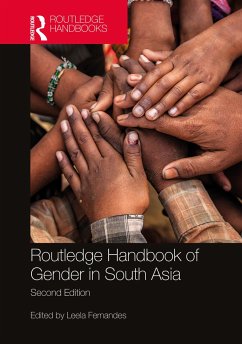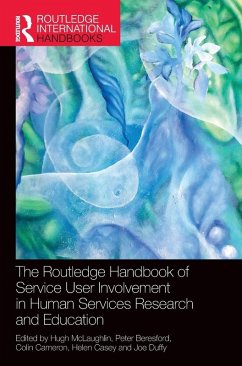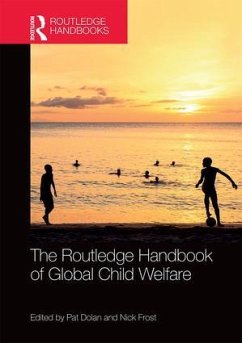
Routledge Handbook of Contemporary South Korea
Versandkostenfrei!
Versandfertig in 1-2 Wochen
261,99 €
inkl. MwSt.

PAYBACK Punkte
131 °P sammeln!
The Routledge Handbook of Contemporary South Korea offers a ground-breaking study of the socio-political development of the Korean peninsula in the contemporary period. Written by an international team of scholars and experts, contributions to this book address key intellectual questions in the development of Korean studies, projecting new ways of thinking about how international systems can be organised and how local societies adapt to global challenges. Academically rigorous, each chapter defines current research and lends the reader greater understanding of the social, cultural, economic, a...
The Routledge Handbook of Contemporary South Korea offers a ground-breaking study of the socio-political development of the Korean peninsula in the contemporary period. Written by an international team of scholars and experts, contributions to this book address key intellectual questions in the development of Korean studies, projecting new ways of thinking about how international systems can be organised and how local societies adapt to global challenges. Academically rigorous, each chapter defines current research and lends the reader greater understanding of the social, cultural, economic, and political developments of South Korea, ranging from chapters on the Korean Wave to relations with North Korea and the Korean language overseas. The volume is divided into eight sections, each representing a focused area of inquiry: socio-political history contemporary politics political economy and development society culture international relations security and diplomacy South Korea in international education This handbook provides an interdisciplinary and comprehensive account of contemporary South Korea. It will be of great interest to students and scholars of Korean history, politics and international relations, culture and society, and will also appeal to policy makers interested in the Indo-Asia Pacific region.














